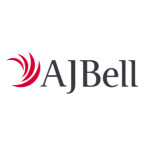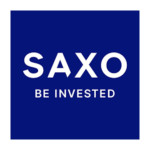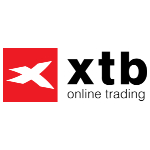Investing In Funds
Funds are investments that pool money from lots of investors. Money is invested in a wide range of assets e.g. UK and international shares, government and corporate bonds etc Different funds will have different investment strategies and objectives.
Investment funds offer individual investors a broader selection of opportunities and access to management expertise as well as lower fees than could be achieved if an investor went alone.
What are the advantages of investment funds?
If you would rather let someone manage your money for you then you can benefit from:
- Diversification of risk – funds typically have holdings between 20 up to 100 or so investments.
- Management expertise – Typically there will be at least one fund manager who will be responsible for the running of the fund and using their expertise to maximise opportunities.
- Investing as little as £25 per month
- Cost efficencies – through pooled investment means that the normal buying and selling costs of investments can be shared across a larger range of people
How to buy investment funds?
| Join today & get £50 FREE trading credit (T&Cs apply). More than 40,000 UK & international investment options Invest from £1 Features: What would you do with £100,000? Open an ii Trading Account to enter our biggest giveaway ever. Capital at risk. Ends 31 July. Terms & fees apply. Minimum £5K deposit |
Go to website » | |
| Trusted by over 400,000 people. Fully FSCS protected. ADVFN Winner 2022 “Best Low Cost Stockbroker”. Capital at risk. | ||
| Choose from over 2,000 funds From £25 per month Features: |
Go to website » | |
| Trusted by over 1.5 million people. FSCS protected. Capital at risk. Other charges may apply. No subscription required | ||
| Invest in over 6,100+ US, UK & EU stocks & ETFs commission-free
Features: |
Go to website » | |
| Mobile app – manage your portfolio on the move. FSCS protected. Capital at risk. | ||
| Access over 3,000 funds. UK & Overseas shares. Invest from £100 or £25 pm Features: |
Go to website » | |
| Hargreaves Lansdown is the UK’s No 1 platform for private investors trusted by over 1.6 million customers. Capital at risk. | ||
| Access to 70,000+ instruments, smart trading tools & market insights
Investment platform for different needs and experience levels |
Go to website » | |
| Saxo serve clients in 170 countries, hold 70+ bn GBP in assets under management & process 1m transactions daily. FCA regulated. Capital at risk. | ||
| Buy & trade over 3500+ UK, EU and US stocks with low 0.35% currency conversion.
Features: |
Go to website » | |
| Multi-currency investing, your money goes even further without the constant foreign exchange fees. Deposit, hold and invest in international stock markets in EUR, GBP and USD — all under one roof. Shares have a low, transparent execution cost. Investing in your local ETFs is completely free of Lightyear fee (other fees may apply). Earn interest on uninvested cash. Access live news feeds about the stocks you own, as well as professional analyst ratings & price targets. Lightyear is now live on web and has launched earnings calls audios. Capital at Risk. We, Fair Investment Company, will be paid a referral fee if you open an account and deposit funds through some of the links on this page. This includes financial promotion. | ||
| Invest in real stocks with 0% commission*. Over 5300 instruments…
Features: Earn 5.2% interest rate per annum on uninvested GBP
|
Go to website » | |
| World class trading platform: Easy to use, fully customisable, superior execution speeds, performance statistics. Applying for an account is quick and easy with a secure online form, and you could be trading within minutes. Wide range of instruments -forex, indices, commodities, shares and ETF’s. Multilingual customer support team is ready to help you – 24h hours a day from Monday to Friday. *For monthly turnover up to 100,000 EUR (then comm. 0.2%, min. 10 EUR). Capital at risk | ||
| Buy & trade over 17,000+ shares online. FX conversion fee of just 0.5%. Invest from £1 Features: |
Go to website » | |
| IG offer exclusive out of hours giving access to 70+ shares when the market is closed. 313,000+ clients worldwide. FCA Regulated. Capital at risk. Spread bets and CFDs are complex instruments and come with a high risk of losing money rapidly due to leverage. 71% of retail investor accounts lose money when trading spread bets and CFDs with this provider. You should consider whether you understand how spread bets and CFDs work, and whether you can afford to take the high risk of losing your money | ||
| Choice of 500 low cost ETF Funds Invest from £1 Features: |
Go to website » | |
| The InvestEngine offers investors a low cost ETF investment platform. Build your own portfolio commission free or leave it to their experts for just 0.25%. Build your own low cost portfolio using managers such as Vanguard, iShares & Invesco. FSCS protected. Capital at risk. | ||
What types of investment fund are there?
There are 3 types of investment fund:
Open ended funds – Often called OEICs or Unit Trusts in the UK or mutual funds in the USA. As the term suggests the fund is open ended, so as more investors invest, the fund gets bigger and vice versa.
Closed ended funds – Or commonly known as investment trusts. With an investment trust there is a fixed number of shares. When you buy shares, you are buying those shares from other investors via the stock market.
Exchange traded funds – Known as ETFs, similar to investment trusts as their shares are traded on a stock exchange, and typically track an index such as the FTSE 100 or S&P 500. ETFs are low cost and are becoming increasingly attractive with investors for that reason.
How do I invest?
You may have decided on the fund or funds you wish to invest in.
The next step is to choose a fund platform – the advantage of a platform is that it gives you flexibility in managing your investments which you don’t get if you invest directly with one fund manager.
An online investment platform is simply an online account where you can access your investments including, shares, ISAs, investment funds in one place.
The point is to make your life easier!
You can buy funds simply online usually at a discount and as well as a direct account, you also have the option with all good platforms to hold the fund in a tax free wrapper such as an ISA or a SIPP.
Benefits include:
- Easy access to the stockmarket
- Many platforms provide ready made portfolios/funds to help you choose
- Keep your ISAs, Junior ISAs and pensions (SIPPs) in one place
Most platforms will also provide useful research tools and ways of assessing performance of investment funds you are considering.









